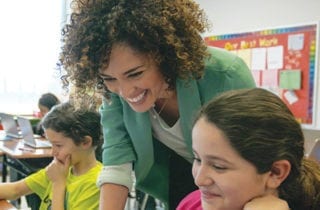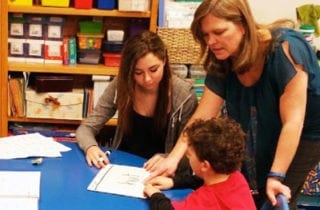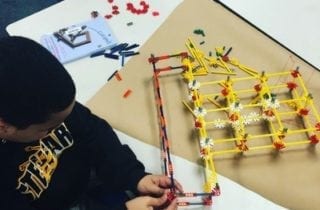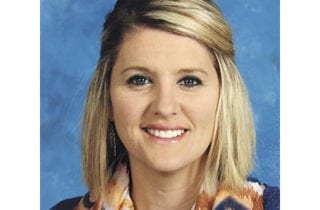How should an entire district begin teaching digital citizenship? Creativity, flexibility, and strong goals are a must. In “Roadmap to Districtwide Digital Citizenship Adoption,” Theresa Ellington, Instructional Technology Manager at Life Schools Charter School in Texas, explained how she was able to implement a digital citizenship curriculum throughout the Title I district with limited time and no money, and shared lessons learned from the district’s first year using a digital citizenship curriculum.
edWeb.net and the Congressional Medal of Honor Foundation (CMOHF) are working together to present live interviews with Recipients of the Medal of Honor for educators and their middle and high school students. These inspirational interviews provide rare opportunities for students to hear directly from Recipients and also ask questions about their childhood, their military service, their courage, and their lifetime of service. A conversation on the value of integrity, courage, and the importance of character and leadership education students learn through these stories was hosted by Larry Jacobs on Education Talk Radio, with Jason Robbins, High School Teacher, Steele Canyon High School in San Diego, CA, and Lisa Schmucki, founder and CEO of edWeb.net.
The use of differentiated instruction to individualize each student’s learning experience is becoming more common in today’s elementary classrooms, but creating meaningful differentiation for a typical class of 25 students or more can still be a challenge. What should educators and administrators know about adaptive learning? In “Adaptive Literacy Learning 101,” presenters reviewed findings from Tech & Learning’s 2017 survey on adaptive learning and highlighted key points that everyone should know.
Personalized learning for struggling readers can be timesaving and easy to execute. Finding patterns and honing in on students’ reading skill deficits will quickly point educators to the appropriate intervention. In “Timesaving Strategies for Selecting Interventions for Struggling Readers,” Cindy Kanuch, Reading Specialist at Calhan Elementary School, presented tips on working to address skill deficits in the most efficient and effective manner, which in some situations can help students improve in as soon as one to two weeks.
A successful school makerspace needs an enthusiastic maker community, school-wide participation, and staff support. Challenge-based learning projects in the makerspace have many benefits for students, and can engage and get them excited about new projects. In “Challenge-Based Learning in the School Library Makerspace,” Diana Rendina, Media Specialist and Writer, Tampa Preparatory School, Tampa, FL, presented tips for design challenges and shared experiences from working in the makerspace during her time at Stewart Middle Magnet School in Tampa, FL.
edWeb.net and Digital Promise have launched Research and Evidence in Edtech, a free, professional learning community on edWeb. This new community will bring together researchers, educators, and product developers to share best practices related to edtech research and evaluation.
Girls Thinking Global (GTG), dedicated to connecting nonprofits that serve adolescent girls and young women around the world and Women’s Education Project (WEP), dedicated to leadership, and college and career training of young women in India and South Asia, are forming a strategic alliance focused to develop leadership skills in adolescent girls and young women to help lift them out of poverty and positively impact their communities.
We are delighted to post this article by Brittany Fowler, a Freed-Hardeman University student in the M.Ed. in Instructional Technology Program: “edWeb.net is your one stop shop for professional development opportunities. I enjoy becoming a part of the various online communities. By doing so, I am able to increase my technology tool box as well as collaborate with fellow teachers.”
edWeb.net, a free professional learning network, has been recognized by the New York State Education Department as an approved sponsor of CTLE for Professional Classroom Teachers, School Leaders, and Level III Teaching Assistants. Teachers in New York State can now use edWeb.net’s free professional learning edWebinars and CE certificates towards their professional development. edWeb is listed as an approved sponsor on the New York State Education Department’s website.
Parents today want more information from their children’s teachers and schools, but they also want that information to be timely, targeted, and personalized to their children or their interest areas. The latest data from Speak Up Research Project gives insights on school to home communications. In “Text, Twitter, Email, Call—What Do Parents Say About School Communications?” Dr. Julie Evans, Chief Executive Officer, Project Tomorrow, shared these insights from parents, educators, and administrators, and discussed takeaways from the research.











